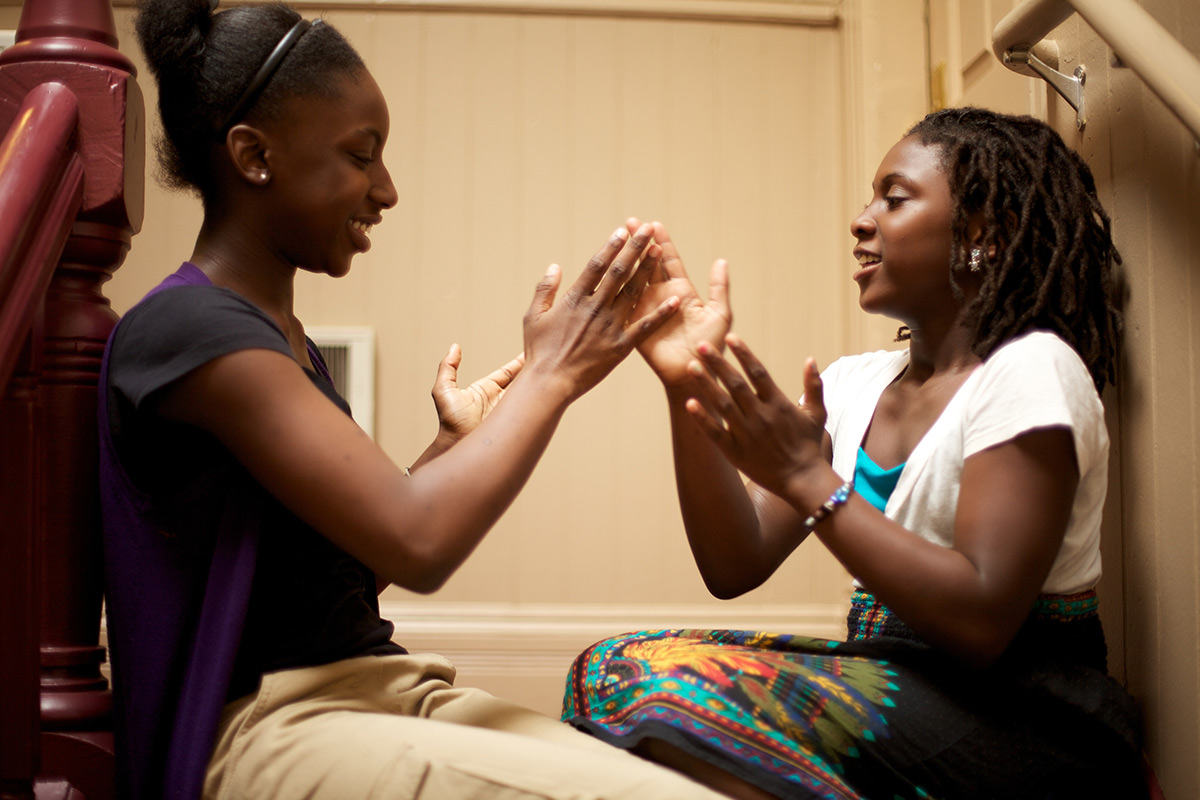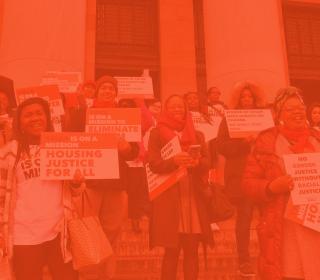When a home isn’t safe
For survivors of domestic violence, staying home might not be safe if they still live with their abuser. This is particularly true if the abuser becomes the primary breadwinner for the household, as the survivor quickly becomes economically dependent upon the abuser for food and shelter.
As YWCA’s Domestic Violence Services Program Manager Doris O’neal put it: "Now the abusive person is even more [abusive] because finances are tight, food is tight, children are home all day — kids are eating breakfast, lunch and dinner in the home. That can create a big deal, if you have more than … two or three children.”

Survivors who live in South Seattle and South King County also often face more hurdles than do survivors in other areas, O’Neal said, because they are hampered by other issues like systemic racism. Fewer King County resources are allocated to the South End, where more vulnerable communities tend to live. The inequitable underfunding of domestic violence programs was a major issue before the coronavirus pandemic, and it has now become a full-fledged crisis.
Still, O’Neal said YWCA wouldn’t turn anybody away even if they had COVID-19 symptoms. While the staffers wouldn’t be able to admit a potentially infected woman to the program’s shelter until after she underwent a 14-day quarantine, they’d try to help that woman get tested for the coronavirus and figure out a plan: “What can we do to be safe, just for that time, that you can plan to leave that abusive situation?”
Echoes of a past pandemic
For the staff and program members of BABES Network, YWCA’s peer-to-peer support network for women living with HIV, COVID-19 carries familiar and dangerous reminders of the AIDS pandemic. Program manager Alora Gale-Shreck says that the HIV community was already living with chronic illness, so they have protocols established and “a skill set that’s almost advantageous.”
But while BABES members know how to deal with flying during flu season with only 20 T-cells (the type of white blood cell that is core to the immune system), what they're not accustomed to is having all support networks being shut-down at the same time. That makes it more difficult to safely get groceries, medicine, child care, or doctor’s appointments.

These difficulties are even greater for essential workers who might be further targeted for their HIV-positive status, their immigration status, or both. She told the story of one BABE who is a single mom and an undocumented worker. After she tested positive for COVID-19, she had to ask a caregiver she barely knew to care for her child for a full week. She was afraid to tell them it was because she had COVID-19.
Gale-Shreck says they have the phone lines open, are responding to email, and offering more tele-health support as staff has improved their own tech access. BABES have started virtual support groups and hope to add additional weekly sessions in the future.
Staying healthy without a home of your own
For women who are experiencing homelessness during this crisis, standard public health advice to “stay home” isn’t possible. At YWCA's Angeline's Day Center, we're working to keep everyone at safe distances, which has required lowering the number of women that we are able to serve.
We talked with Lilliann Hansell, Angeline's Program Manager, about what barriers were facing the women they see every day. A big one that she sees now is "getting documents or replacing documents is very challenging due to closures of the Department of Social Health Services, Department of Licensing, and the Social Security Administration. Many women that are going to be placed in housing may need updated documents to complete that process."

Hansell also said that while clients can call and have documents mailed to them at Angeline's, that can take up to two weeks, a delay which may cause them to miss a housing application. She also echoed what Alora told us, that the women at Angeline’s had established routines. "A typical day may be going to the public library to access other organizations, medical appointments, etc. Since the shelter in place, all of these options aren’t available any more"
As we look towards building a new future from COVID-19, we must work to replace the broken systems that have been revealed by the pandemic. Our recovery from this disease would be much easier and quicker if we had adequate funding for preventing domestic violence, affordable healthcare for everyone including folks with autoimmune diseases, and if we had made substantial investments in housing to end homelessness. We might have failed to fix these systems for this pandemic, but there's no better time to change that course.
Subscribe today to receive our legislative advocacy alerts to learn how and when you can take action to eliminate equity barriers and fix the broken systems that prevent all people from thriving.

Eric Bronson is the Digital Advocacy and Engagement Manager at YWCA. He manages the Firesteel blog in addition to its social media streams and action initiatives. A graduate of Oberlin College, Eric focuses on the intersection of race and gender within the American political economy.
We tell the stories of those with lived experiences of racism and sexism and invite supporters to take concrete actions to correct the root causes of disparity in our communities.


